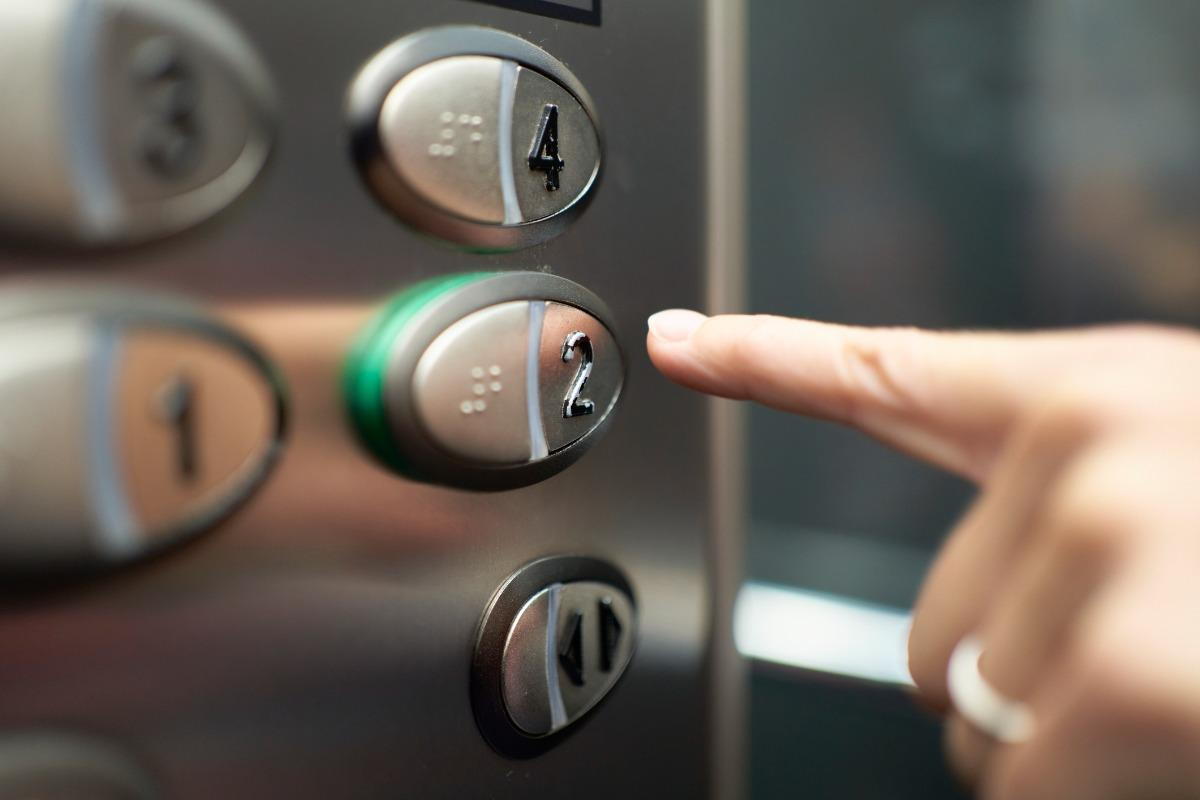
- posted: Mar. 20, 2024
- Personal Injury
Elevators, despite appearing to be ordinary components of our everyday environment, have the potential to present substantial hazards in the event that safety protocols are disregarded. The Licatesi Law Group has witnessed the severe outcomes of elevator accidents. From slight injuries to catastrophic harm, these occurrences require immediate notice and prompt action. This blog post explores the risks of elevator accidents, their typical causes, resulting injuries, and how our organization can assist you during these difficult circumstances.
Elevator accidents can happen due to a variety of circumstances, including technical malfunctions and human mistakes. One of the main dangers arises from faulty doors. If elevator doors malfunction, passengers may get stuck or injured, resulting in lacerations, fractures, or amputations. Sudden drops or jolts due to mechanical failures or incorrect maintenance can lead passengers to lose balance and sustain severe injuries upon impact. Passengers could suffer traumatic brain injuries (TBIs) when their heads strike surfaces within the elevator, resulting in a range of injuries from concussions to serious brain damage. Spinal cord injuries can occur due to a strong impact, causing paralysis or other neurological impairments. Fractures are frequent occurrences, impacting limbs, ribs, pelvis, and vertebrae as a result of the significant pressure applied to passengers' bodies. Soft tissue injuries like bruises, strains, and sprains are common due to the abrupt deceleration leading to muscle rips and ligament damage. Possible outcomes of the hit may include internal injuries such as organ damage and internal hemorrhage. Additionally, passengers may have psychological trauma, including PTSD and anxiety, which can worsen the emotional impact of the occurrence. It is essential to promptly seek medical assistance because certain injuries may not be immediately obvious.
There are numerous contributing factors to elevator accidents. Mechanical issues, like malfunctioning parts, insufficient maintenance, or defective wiring, can cause elevator breakdowns, endangering passengers. Malfunctioning doors that do not open or close correctly can lead to entrapment or harm. Exceeding the elevator's weight limit might stress the equipment, leading to malfunctions or abrupt descents. Flawed installation, characterized by mistakes in the installation procedure, jeopardizes the safety and stability of elevators, increasing the risk of accidents. Negligence, shown by not following safety laws or promptly dealing with recognized problems, can lead to accidents and injuries.
Regulations and standards exist to avoid elevator accidents and maintain passenger safety. Regular inspections and maintenance are conducted by property owners and managers to identify and address any hazards. Elevators are fitted with safety measures including door sensors, emergency brakes, and alarms to safeguard passengers in case of malfunction. Weight capacity limitations are maintained with prominent signage and warnings to prevent overloading, which can stress the system and increase the danger of accidents. Elevator installations must adhere to building rules and regulations to guarantee structural integrity and compliance with safety standards. Building personnel and elevator operators receive training in elevator operation and emergency protocols to successfully handle accidents or breakdowns. Elevator accidents may still happen despite safety precautions, as a result of technical malfunctions, human mistakes, or neglect. Consulting with a knowledgeable personal injury attorney is crucial in these situations to evaluate liability and take legal action to obtain compensation for injuries and damages.
Assigning liability for injuries in elevator accidents may differ based on the specific details of the event. Various parties may be responsible for an elevator accident, such as the property owner or manager in charge of maintenance, the maintenance company hired for servicing, the elevator manufacturer for defects, and contractors or installers for installation errors. Liability for each party is determined by elements including maintenance records, inspection reports, and compliance with safety rules, requiring a comprehensive investigation in elevator accident cases.
It is critical to be aware of your legal rights and to act quickly to obtain legal counsel if you or a loved one has been hurt in an elevator accident. The Licatesi Law Group specializes in personal injury lawsuits, particularly those related to elevator accidents. Our skilled lawyers are knowledgeable with the intricacies of such matters and are dedicated to advocating for your entitlement to the highest possible compensation.
Choosing our firm guarantees a thorough and all-encompassing strategy for your case. We offer empathetic assistance, acknowledging the physical, emotional, and financial impact of an elevator accident, guaranteeing you receive the care and consideration you merit. Our staff conducts comprehensive investigations into the accident, collecting evidence, interviewing witnesses, and seeking advice from specialists to construct a robust case in your favor. We are dedicated advocates for our clients, providing assertive representation and persistently seeking justice. We strive to obtain the compensation necessary to cover medical costs, lost income, emotional distress, and other losses through either negotiation or legal action. If you have been a victim of an elevator accident, please contact us today at (516) 227-2662 for your free consultation.


